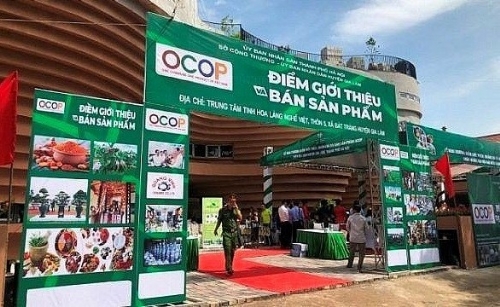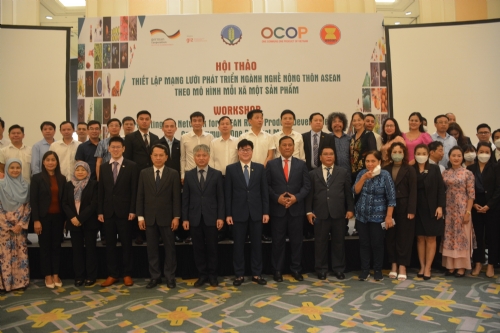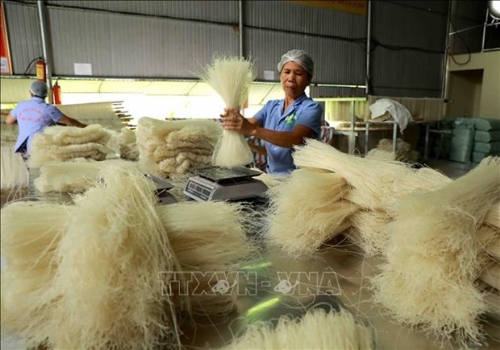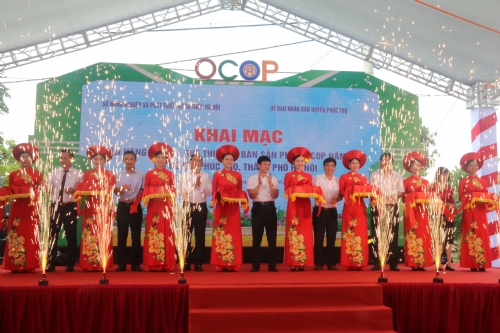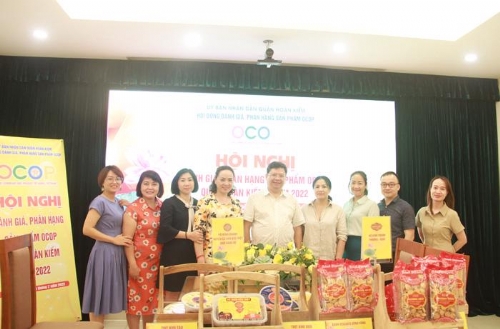Motivation for Rural Economic Development
Tuesday, May 19, 2020 12:03
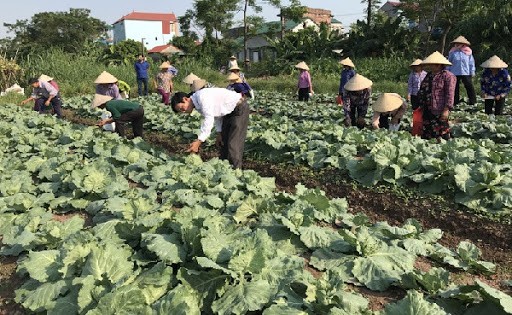
In recent times, the One Commune One Product (OCOP) Program has obtained many impressive achievements, creating a broad effect and affirming Vietnam’s agricultural brand. Many of Vietnam’s quality agricultural products have reached the world market, including OCOP products of ethnic minorities.
The OCOP program has been involved in solving a number of rural issues, such as contributing to accelerating restructuring in agriculture, as well as promoting the application and transfer of technology in production, through agricultural and industrial promotion programs to create products with high productivity and good quality. At the same time, OCOP has promoted the formation and restructuring of cooperatives and businesses in rural areas, thereby making people become the owners of the development process through contributing capital to cooperatives and businesses; developing OCOP to create jobs in the countryside, limiting rural labor migration to urban areas, increasing incomes and reducing poverty. OCOP has attached great importance to the training of human resources so that young rural workers have conditions to start their own business. Therefore, the implementation of this program is considered appropriate in the current context.
Mr. Do Tan Son, Deputy Director of Ha Giang Department of Agriculture and Rural Development, said that in 2019, Council for OCOP Evaluation and Grading of Ha Giang province had received dossiers and products of 11 districts in the province; of which, 86 sets of documents of 6 industries were eligible for product classification. Through classification assessment, 69 products of 43 entities were granted OCOP product certificates in 2019 with a score of 50 points or more, including 21 products with 4-star grades and 48 products with 3-star grades.
Typically, Tuan Dung Cooperative, a famous mint honey processing facility in Meo Vac district, Ha Giang province, has actively linked production with local residents. The cooperative has focused on investing in production lines with technology of reducing water content with a capacity of separating 30 liters of honey an hour. The introduction of advanced machinery to replace traditional manual equipment has created quality mint honey products. Its mint honey products have just been recognized to meet an OCOP 4-star standard; registered for geographical indications, and received registration certificates of typical rural industrial goods and products; and the cooperative has been certified for food safety.
Mr. Then Van Hai, Director of Tuan Dung Cooperative, said the cooperative had 2,500 colonies of bees and collected over 10,000 liters of honey each year. Its products are sold at BigGreen supermarket system and many other places. Ha Giang province has supported the development of models applying food safety management systems based on Hazard Analysis and Critical Control Point (HACCP) standards for honey processing facilities; applying Vietnamese Good Animal Husbandry Practices (VietGAHP) to bee farming. As a result, 243 mint honey production and trading households have been trained to implement HACCP and VietGAHP procedures. The province has completed the construction of a food safety management system, certifying HACCP standards for seven honey processing facilities and VietGAHP for nine beekeeping facilities. Like Ha Giang's mint honey, the ginger essential oil product in Bac Kan has also been recognized to meet a 4-star standard, becoming a commodity exported to many countries around the world. Currently, Bac Kan ginger essential oil products are also present in most provinces and cities across the country and are exported to Japan.
With the goal of having stable honey production of over 25,000 liters/year by 2021; receiving ISO 22000 certification for food safety management; and having 30% of its products exported to the international market, the cooperative will continue to promote communications and branding; improve packaging designs; expand markets; establish product distribution systems at major supermarkets; and participate in fairs and exhibitions; thereby promoting production and consumption of products and creating jobs for workers.
As many as 900 products have been recognized as OCOP products including 16 five-star products; 275 four- star products 585 three-star products.
Minh Ngoc

 THE PROGRAM COOPERATED WITH CENTRAL COORDINATION FOR NEW-STYLE RURAL DEVELOPMENT
THE PROGRAM COOPERATED WITH CENTRAL COORDINATION FOR NEW-STYLE RURAL DEVELOPMENT
Other news
- HANOI: Promoting the consumption of craft village products and developing community tourism(11/5/2022 3:16:04 PM)
- Chuong My: Effectiveness from the One Commune One Product Program(11/3/2022 10:04:10 AM)
- Thanh Hoa develops OCOP products(11/1/2022 1:30:31 PM)
- Promoting the network for Asia Rural Product Development on one commune one product(8/30/2022 9:43:23 AM)
- Phu Tho eyes 56 new 3-star OCOP products for 2022(8/23/2022 3:09:56 PM)
- Opening of the OCOP product introduction week in Hanoi in 2022 in Phuc Tho district(8/1/2022 3:28:38 PM)
- Evaluation and classification of OCOP products Hoan Kiem District in 2022(7/27/2022 10:10:23 AM)
- Hanoi turns to green, sustainable agricultural sector(6/28/2022 4:10:22 PM)
- OCOP Forum in the Mekong Delta - Dong Thap 2022: Opening up great opportunities for regional products.(5/4/2022 2:38:13 PM)
- Over 1,000 spice products on display in Ho Chi Minh City(4/29/2022 2:34:02 PM)
The featured news
-
HANOI: Promoting the consumption of craft village products and developing community tourism
-
Promoting the network for Asia Rural Product Development on one commune one product
-
Phu Tho eyes 56 new 3-star OCOP products for 2022
-
Opening of the OCOP product introduction week in Hanoi in 2022 in Phuc Tho district
-
Evaluation and classification of OCOP products Hoan Kiem District in 2022


